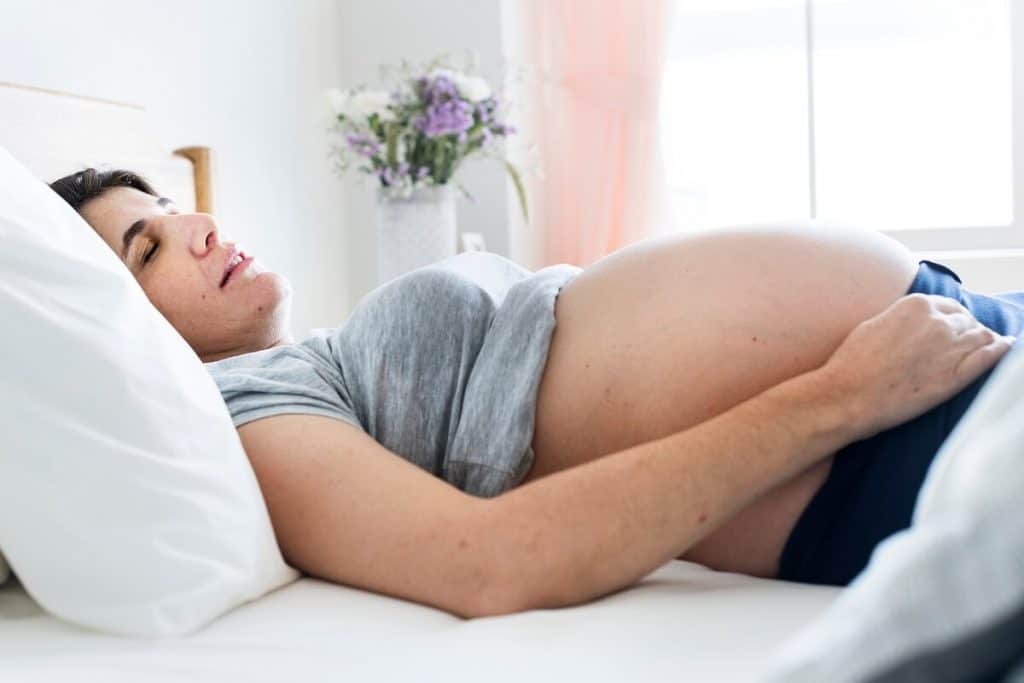
Getting better sleep during pregnancy is a difficult thing for expectant mothers. It’s necessary for pregnant women to get all the rest they can for their newborn. According to a study by the University of Australia, sleep is a critical factor among pregnant women that can impact the health of their unborn baby.
Researchers found poor fetal outcomes when analyzing a child’s weight, growth, delivery, and risks of stillbirth. There are over 300,000 births per year and 15 percent of babies with that need extra care. A ratio of one in 10 newborns is born premature, while six babies are stillborn every day in Australia.
Many women suffer from sleep disorders, backaches, or frequent urination. As if that’s not enough, more expectant mothers suffer insomnia, gastro diseases, and sleep apnea that further complicate their sleeping cycles.
So, here’s what you know about better sleep during pregnancy.

Common problems in sleep during pregnancy
Getting enough sleep is challenging especially when you have your baby bump on board. All these sleep problems make it harder to get a good night’s rest. Have you experienced one of them?
Insomnia: stress and anxiety
If your thoughts are clouded with stress about motherhood, labor, or work-life balance, it can cause insomnia. Such thoughts can contribute to sleepless nights and difficulty in waking up the next day. Chronic stress can lead to postpartum depression and fetal disorders.
Snoring and sleep apnea
Snoring might be just a symptom of a more complicated disease. And, sleep apnea is just one of them. Obstructive sleep apnea interrupts your breathing as it blocks your airways due to fatty tissues buildup on your throat. Women who are overweight are more likely to suffer from sleep apnea. one common problem expecting mothers experience is overeating and thus, sleep during pregnancy can be a huge problem.
Back pain
Back pain is common during pregnancy as your skin and ligaments stretch to prepare your body for childbirth and labor. The pressure on your ligaments causes back pain. The sensation often brings restless nights to expectant mothers.
Sleeping hot
When you’re pregnant, your hormones change and get wonky at times. What’s more, your metabolic rates went up higher and that’s why you feel hot when you sleep. Cooling your room or changing your mattress to improve airflow can help lessen sleep problems.
Restless Leg Syndrome
It’s a condition common in women during their 7th or 8th month of pregnancy experience itching, creeping, or burning sensations in the legs. Some expectant mothers experience a mild feeling on the soles of their feet, while others have more serious feelings on their legs.
Frequent urination
During your pregnancy, hormonal changes let your blood flow more to your kidneys faster. This makes your bladder full often and causes more urination during pregnancy – especially at night. What’s more, your baby is putting pressure on your bladder and further presses it, thus, wanting you to pee more.
Heartburn
Heartburn is a common problem of sleep during pregnancy. Once again, hormonal changes cause the digestive system to slow down the process. It’s actually one of the reasons why women tend to grow big during their terms. What’s more, your growing tummy puts pressure in your stomach and pushes acids up.

Tips for better sleep during pregnancy
Sleep disruption can be critical for pregnant women – most especially, to their babies. Expectant mothers can heed these tips to get the sleep they need. Because when pregnant sleep – they sleep for two.
Sleep on your left
Sleeping on your left can increase blood flow to your organs – uterus, kidneys, liver – and bring more nutrients to your baby. Avoid sleeping on your back or stomach that can be detrimental to both of you.
Keep a regular sleep cycle
Make sure you go to sleep and wake up at the same time. This helps to keep your body in the right rhythm.
Practice sleep rituals
Put down your gadgets at night and do activities that can help you relax. Take a warm bath or drink a hot cup of milk or chamomile tea. Why not read a book rather than scrolling on your Facebook feed?
Lie down even if you can’t sleep
Even if you can’t sleep, just lie down and it’ll come to you eventually. Additionally, you can darken the room to help your body reach a deep slumber. If it’s daytime, cover the windows and turn off lights from the room. Don’t try to pick up your phone or turn on your bed lamp.
Try meditation
Motherhood can be scary – but, leave that thought away. Overthinking your situation can heighten stress and anxiety, thus, leading to depression. You can do safe pregnancy yoga or breathing techniques to calm yourself down. Besides, meditative breathing is healthy for you and your baby.
Exercise every day
Safe exercises for pregnant women can be done at least 20 minutes a day. Getting up to push that energy can improve blood circulation, oxygen flow, and sleep satisfaction. What’s more, it helps expectant mothers to sleep better at night. Always ask your doctor for your recommended workout regime.
Use cooling pillows and mattresses
Sleeping hot is an issue many pregnant women face in their terms. One way to address this concern is to invest in cooling pillows and mattresses that keep the temperature at bay. In addition, choosing the firmness and material of the bed is crucial to a good night’s sleep.
If you want to sleep cooler, an innerspring mattress or hybrid bed may do wonders. But, it’s not as soft and contouring than memory foams. But with foams, you tend to sleep hot due to its density. Always know your needs before buying a mattress.

The takeaway
If you still have issues with sleep deprivation, always talk to a doctor or professional for further advice. Pregnancy should be a glowing phase of a woman’s life. You shouldn’t wake up in the morning feeling groggy and lethargic. You need to be awake and lively for your baby.
Solace Sleep Products
At Solace Sleep, we have a variety of sleep products that help address your concerns. Built by women for women, we believe motherhood should be blessed with peaceful slumber to get the most for your child.

Featuring our signature “Responsive” mattresses designed for cool comfort and support to pregnant women.

Our beds are designed to give expecting mothers the best contour, support, and comfortable sleep possible they need.




